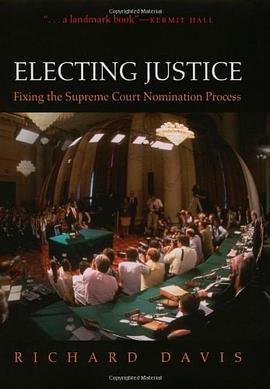

具体描述
The nomination and confirmation of Supreme Court justices has, in recent years, become a battleground like no other. Bruising Senate confirmation hearings for failed nominee Robert Bork and successful nominee Clarence Thomas left the reputation of all branches of government in disarray and the participants--and the nation--exhausted. The Senate's Constitutional prerogative to provide advice and consent to the President's nominations to the highest court in the land has given rise to political grandstanding and ideological battles. Less well known is how other players--interest groups, the news media, and, through their involvement, the general public--also affect the conduct and outcome of the Supreme Court nomination process. Electing Justice reveals how from the late 1960s on, the role of these other players grew in intensity to the point that the nomination process would be unrecognizable to its original devisers, the Framers of the Constitution. Over the past quarter century, live television coverage of Senate hearings, "murder boards" in preparation for those hearings, a flood of press releases, television and radio advertisements, and public opinion polls all characterize nominations. Unlike earlier, more elite-governed processes, the involvement of outside groups has become highly public and their effect on the outcome of some nominations is now widely accepted. How should we respond to this informal democratization of the selection process? The genie, Davis contends, cannot be put back into the bottle and we cannot return to a non-political, elite-driven ideal. Davis concludes with several controversial recommendations that preserve the public role while avoiding the excesses of past controversial nominations. By embracing the public's new role in the examination of nominees we can ensure a democratic process and secure an independent and accountable judicial branch.
作者简介
目录信息
读后感
评分
评分
评分
评分
用户评价
相关图书
本站所有内容均为互联网搜索引擎提供的公开搜索信息,本站不存储任何数据与内容,任何内容与数据均与本站无关,如有需要请联系相关搜索引擎包括但不限于百度,google,bing,sogou 等
© 2026 book.quotespace.org All Rights Reserved. 小美书屋 版权所有




















